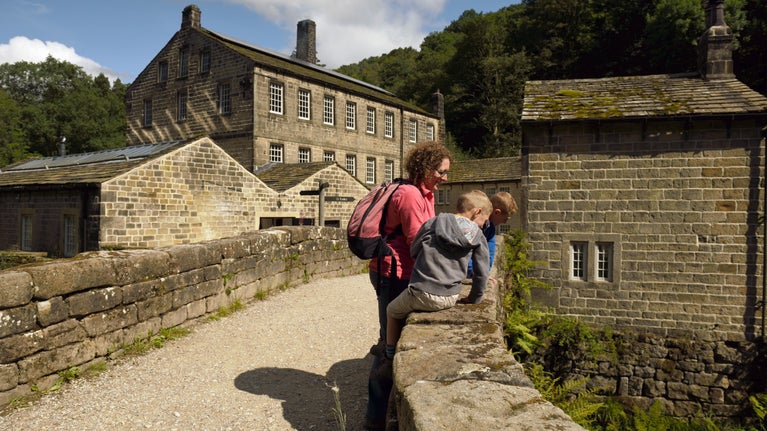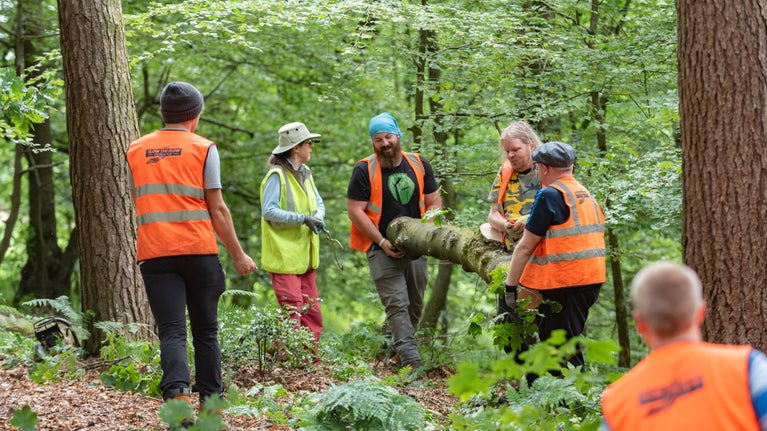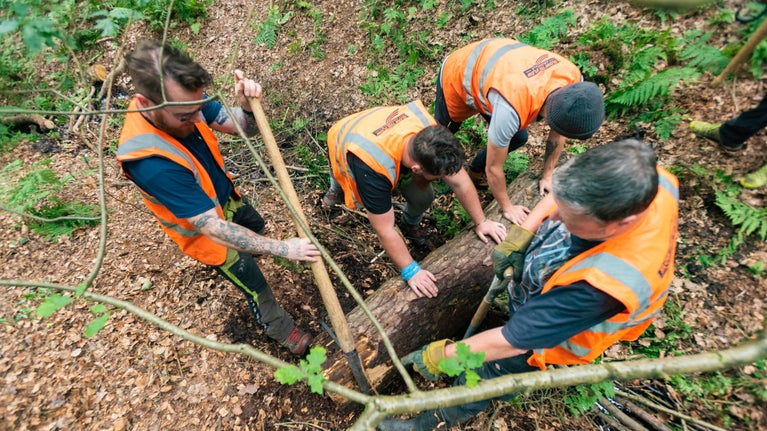
Discover more at Hardcastle Crags
Find out how to get to Hardcastle Crags, where to park, things to see and do and more.

Take a walk through the woods at Hardcastle Crags after heavy rain and you’ll notice dozens of tiny streams that form on the steep valley sides. Since 2016, the National Trust has been working with community partners Slow the Flow to implement natural flood control methods and manage the impact that water flowing through this landscape has on downstream neighbours.
With the support of generous funding from the Environment Agency, we’re working to reduce flood risk, as well as boosting habitats for wildlife and plant life.
Water from Hardcastle Crags runs into Crimsworth Dean Beck and Hebden Water, which then flows into the River Calder.
We’re using logs and brash (branches and leaves) to create leaky dams across smaller streams and gullies. These leaky dams give the water more time to pool and soak into the ground, rather than running straight into the rivers.
We’ve also been thinning our beech and pine trees in some parts of the woods. This allows more sunlight to reach the woodland floor, encouraging native woodland plants to grow. These plants then help intercept storm water on the steep valley sides, acting like speed bumps.
All this work is helping to reduce flood risk in the Calder Valley, thanks to an army of volunteers.

As well as reducing flood risk, our work in the woods is also benefiting nature. Beech trees are being replaced by a variety of native species that are more suited to the woods, like oak and blackthorn. More light to the forest floor means smaller plants like bluebells can flourish.
We’ve left behind deadwood habitats, which are a haven for roosting bats, fungi, nesting birds and insects. The work is also reducing the amount of silt that reaches the streams and ponds, which helps amphibians, invertebrates and fish to thrive.
Every two weeks, Slow the Flow and the National Trust run volunteer days where people can help us build leaky dams and join in with other natural flood management tasks. So far we’ve built over 600 leaky dams thanks to the enthusiasm and hard work of local people.
You can see evidence of our natural flood management throughout Hardcastle Crags and can help us monitor how our leaky dams behave in storms and change over time.
Look out for numbered fixed-point photography posts with white tops – you can use your phone to capture images and submit these to secretary@slowtheflow.net.

Find out how to get to Hardcastle Crags, where to park, things to see and do and more.

Discover how the National Trust are working to manage woodland, and in doing so improving habitats for wildlife, limiting flooding and reducing our carbon footprint.

From welcoming visitors and sharing your passion for the outdoors, to helping us care for beautiful countryside, there are many opportunities to volunteer at Hardcastle Crags.
Discover how the National Trust has put Calderdale on the map with its Grassland Fungi Project.